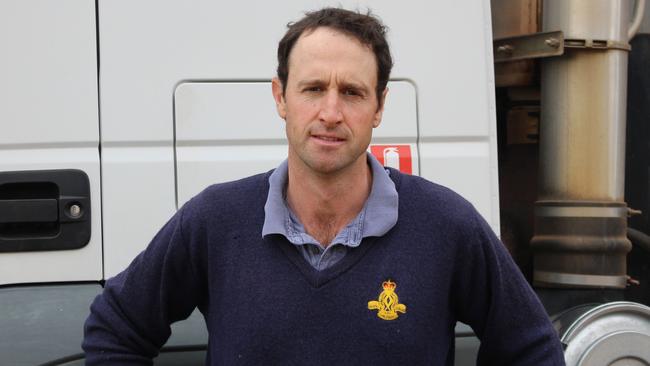ISCC: Australian grain growers fear European regulation
Europe could force regulations on Australian farming businesses restricting the use of certain chemicals and enforcing biodiversity requirements, sparking concerns from a powerful growers body.
Australian grain growers fear their farming systems will soon become regulated by Europe, restricting what chemicals they can use on their properties and what biodiversity requirements must apply.
They worry local farmers may see carbon certification systems designed in Europe being forced upon them unless they set up their own Australian sustainability scheme acceptable to overseas customers.
Grain Producers Australia and a senior WA Farmers member have raised concerns Australia’s grain production and other commodities may increasingly be governed by rules set under the International Sustainability and Carbon Certification scheme, designed by a European company.
They believe the ISCC scheme is gradually increasing its tentacles over Australian farming systems and may soon force bans on the use of glyphosate and other chemicals on Australia farms and force farmers to take arable land out of production.
GPA southern director Andrew Weidemann believes the “creeping agenda” of the ISCC scheme might eventually flow on to livestock, wine and horticultural industries in Australia, affecting their sales overseas.
Currently, Australia must comply with ISCC rules to sell canola into the European Union’s biofuels market.
The ISCC scheme is administered in Australia by Sustainable Grain Australia — set up by the Australian Oilseeds Federation — and the CBH Group in Western Australia.
The Weekly Times understands Australia was able to access the lucrative European Union canola market – which takes more than half the nation’s exports of the oilseed – by complying with the ISCC scheme.
While most canola growers easily met the current ISCC rules, WA Farmers grains committee vice-president Mark Fowler has held concerns for the past year that the scheme would gradually creep to take control of other aspects of Australian farming, not just in grains but potentially other commodities.
Mr Fowler said WA growers “almost can’t sell grain unless under an ISCC contract” and he feared Asian grain buyers would soon demand compliance with the European sustainability scheme.
“We’re surrendering our whole provenance story to European regulators,” he said.
“The ISCC scheme is based on European ideas around sustainability.
“The real problem is that European regulators have been influenced by popular politics.
“We have seen that with France and Germany trying to ban glyphosate.
“If they ban glyphosate in WA, we would have to go back to ploughing again, which is ridiculous.”

Mr Weidemann said Australian grain growers might be required to take 5 per cent of their arable land out of production if they wanted to sell their grain in EU countries under new biodiversity and pollinator action plans demanded under the union’s biofuel Renewable Energy Directive.
He said European farmers were required to do the same but the EU subsidised them to take land out of production.
He said the issue was one of sovereignty, whereby the EU was dictating how Australian farmers must carry out their business.
“We have to step up in the market place and say we’re going to protect the Australian grain grower and make sure they don’t have to meet the requirements set by another country,” he said.
But AOF executive director Nick Goddard said most, if not all, Australian canola growers would already comply with the EU’s biodiversity and pollinator action plan and would not have to take land out of production.
“Most Australian growers are meeting these regulations with their eyes closed,” Mr Goddard said.
On banning of farm chemicals, he said the ISCC referred to World Health Organisation lists of “undesirable” herbicides and pesticides.
Last year, the ISCC banned the use of the organophosphate insecticide, omethoate, the active ingredient of Lemat, used by Australian farmers to control red-legged earth mites in crops and pasture.
Omethoate is still an accepted pesticide in Australia due to its different farming systems to Europe.
Mr Goddard said Australia was able to put a strong case to ISCC omethoate was an integral part of the Australian grain farm management system and the European company accepted the arguments.
“ISCC are pragmatic and reasonable people,” he said.
“They don’t want their system to fail.”
Mr Fowler and the GPA believe Australia should develop its own sustainability certification scheme to cover a range of rural commodities before the “horse has bolted”.




